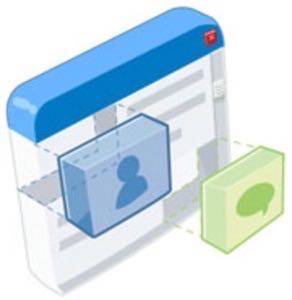Google’s OpenSocial has caused quite a stir over the past week. With support from MySpace, Hi5, Ning, LinkedIn, SalesForce, Friendster and a number of other large social networks, many have wondered if OpenSocial might deal a large blow to Facebook, or if it might be something Facebook will be forced to join to keep up (something that they appear to be open to). But Facebook doesn’t need to worry.

The killer app for any social network is its users, not its developer API. No one joins a social network so they can rate movies, or turn their friends into zombies, or declare allegiance to their favorite sports club. The reason most people join social networks is because their friends are already there, all that other stuff just enhances their experience once they’re in. Users are what make social networks go.
Things like open APIs and data portability and cross network compatibility excite pundits and developers, but most users care for only two things: a good experience (apps can certainly help here) and to be where their friends are. OpenSocial is a huge win for developers, who can now create applications or widgets for just two platforms (OpenSocial and Facebook) and have them deployed to most of the largest social networks. That means a lot less work to reach a maximum amount of people. But it’s silly to think that app developers are going to shun Facebook’s 50 million users if they don’t join OpenSocial. It’s equally silly to think that any significant portion of those 50 million users are suddenly going to defect from Facebook because popular social apps will likely be available on other networks.
Facebook was growing like a weed long before they announced their platform strategy, and they’ll continue growing like a weed in spite of Google’s OpenSocial APIs. Facebook still has the two killer features of any successful social network: users and a good experience. Nothing Google announced this week has changed that, and neither will anything Google announced allow any other social network to automatically trump Facebook in either of those areas.
The winners of OpenSocial are Google (who now has hooks into a large number of social networking sites that reach hundreds of millions of people — whom Google surely hopes will one day be viewing Google ads), users (who now have access to social apps on networks that previously didn’t have developer APIs), app developers. If there are any losers — and I’m not sure there are — Facebook is definitely not one.
All that said, joining OpenSocial wouldn’t necessarily be a bad idea for Facebook. It might make developers happy. It might make users who maintain more than one social networking profile happy. It could potentially expose their users to new applications, and it would ensure that no killer app that everyone needs is developed for OpenSocial but not for Facebook.
Of everything that was written this weekend on OpenSocial, I’d urge you to check out Don Dodge’s excellent post, which I think was one of the most clear headed analyses of the news. But what do you think? Is OpenSocial a threat to Facebook? Should Facebook join with Google or does it not matter? Leave your thoughts in the comments below.

















